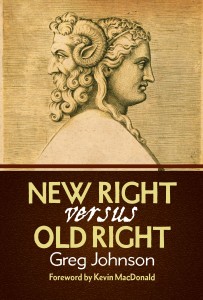The Folly of Quixotism, Part 1

Image courtesy of Bybyk on GoodFon.
2,584 words
Part 1 of 3
Don Quixote is one of the most influential works of fiction of all time. Written in two parts by the Spanish writer Miguel de Cervantes Saavedra in the early seventeenth century, the book tells the story of the comedic adventures of a bumbling knight, Don Quixote of La Mancha. Driven mad by his obsession with romantic stories of knightly chivalry, Don Quixote decides to become a Knight-Errand, put on an old suit of armor, and set off in pursuit of his ladylove, Dulcinea del Toboso, who is nothing more than an idealized figment of his imagination.
Don Quixote constantly finds himself in absurd, farcical situations as a result of his relentless pursuit of his conception of the ideals of knightly chivalry. His numerous mishaps throughout his travels include mistaking an innkeeper and prostitutes for a lord of a castle and fine ladies, challenging random strangers to battle over trivial misunderstandings which he interprets as affronts to his honor, and even charging at windmills, believing them to be giant, long-armed beasts, hoping to prove his valor in battle.
The character of Don Quixote and his misadventures served as the origin of a word used to describe this particular kind of foolishness. The word “quixotism,” translations of which can be found in a number of languages, denotes an over-commitment to romantic ideals, often resulting in reckless and irrational action in pursuit of such. More simply put, quixotism means idealism without practicality:
Quixotism (/kwɪkˈsɒtɪzəm/ or /kiːˈhoʊtɪzəm/; adj. quixotic) is impracticality in pursuit of ideals, especially those ideals manifested by rash, lofty and romantic ideas or extravagantly chivalrous action. It also serves to describe an idealism without regard to practicality.
While the fictional character of Don Quixote served as the inspiration for this word, if there were ever a real-life individual who embodied the folly of quixotism, it would be the naturalist and documentary filmmaker Timothy Treadwell. As a nature lover, Timothy had a deep infatuation with bears in particular. He spent 13 summers in a row, starting in 1990, camping in Katmai National Park in Alaska, where he would observe and record footage of the various species of bears which inhabit the Alaskan wilderness.
Timothy became well-known in both the media and environmentalist circles for his activism and the videos he made of bears during his stays in Katmai National Park. However, he also received criticism from park officials and the broader naturalist community for putting himself in danger and disturbing the wildlife in order to do this. Timothy said that he hated human civilization and felt at peace living in the forest among the bears. He never brought a weapon or even bear spray with him on his expeditions, and refused to set up electric fences around his campsites. Timothy stated that he would never use a weapon against a bear, even if he was attacked, but felt confident that this would never happen, as he believed he had a spiritual connection with the bears and that they were misunderstood creatures.
In the summer of 2003, Timothy again spent the summer in Katmai National Park, as he had every summer for the 12 preceding years, although on this occasion he was accompanied by his girlfriend, Amie Huguenard. They stayed until October, which was later in the year than usual for Timothy. By that time, the bears were hunting more aggressively as they prepared for their winter hibernation. On October 6, the pilot who was supposed to pick them up found their campsite abandoned, save for a bear chewing on what appeared to be human remains.
While it has never been released to the public, an audio recording of Timothy’s last moments as he was being mauled to death by a brown bear has survived. Despite his vow to never use a weapon against a bear, he can reportedly be heard pleading with Amie to attack the bear. Since Timothy refused to carry any weapons, Amie was forced to attempt to use a frying pan to frighten the bear off. Needless to say, this proved ineffective in preventing the bear from ripping Timothy limb from limb before it turned its attention to Amie and did the same. (A highly acclaimed documentary film about Treadwell’s life and death was made by the German director Werner Herzog in 2005, Grizzly Man.)

You can buy Greg Johnson’s The Year America Died here.
What better word to describe Timothy Treadwell’s specific brand of stupidity than quixotism? His starry-eyed dream of living in perfect harmony with wildlife in an everlasting bond of mutual love and understanding blinded him to the facts of nature. A wild animal is just that. He abandoned all practicality in pursuit of naïve idealism. He might have been able to delude himself into thinking he had a deep spiritual connection with the bears of Katmai National Park, but the bears themselves saw Timothy as nothing more than their next meal.
It’s not only individuals who are susceptible to the folly of quixotism. This phenomenon can manifest itself on a society-wide scale as well and have a profound impact on politics. Many of the blunders committed by the twentieth century’s Communist regimes can be attributed to quixotic thinking among their ruling parties. For example, during the so-called Great Leap Forward in Mao’s China, all economic reality was ignored in favor of Maoist ideological purity. Production quotas for essential commodities such as grain and steel were calculated not according to economic feasibility or necessity, but in a desperate attempt exceed the output of the capitalist countries, thus proving the superiority of Communism.
This resulted in the over-reporting of production out of fear of not meeting the quotas and exporting too much grain to the cities, which left the countryside famished. The over-production of steel proved useless due to its low quality and a lack of demand. Estimates of the death toll caused by the results of the Great Leap Forward range between 15 and 55 million. Some deaths occurred as a result of disease, forced labor, or execution, but the vast majority were due to famine. Despite people dying of starvation by the tens of millions, Mao continued to export grain abroad and refused any international aid, all in an attempt to maintain the appearance that China was well on its way to achieving the Marxist fantasy of the workers’ utopia.
In today’s world, the phenomenon of quixotism is having a major impact on the West’s political trajectory. Last year, Harrold Robertson published his now famous article titled “Complex Systems Won’t Survive the Competence Crisis.” Robertson writes of how diversity, equity, and inclusion (DEI) laws such as the Civil Rights Act and affirmative action programs have eroded the United States’ human capital, decreasing the efficiency of the complex systems which the country relies on to function over the past six decades. The quixotism of the American ruling class, whether motivated by naïve egalitarian delusions or malignant anti-white hatred (or a bit of both), is jeopardizing the continued status of the United States as the global superpower.
Quixotism is easy to spot when it’s others falling victim to it, but it’s much harder to recognize in oneself. As a Right-winger, it’s quite easy for me to see quixotic thinking on the Left for the foolishness that it is. It’s a lot harder to look inward and recognize when my side of the political spectrum is guilty of the same. Upon self-reflection, I find that we on the Right fall prey to quixotism just as often, if not more so, than the Left. I can think of three segments of the Right that have engaged in quixotic wrongheadedness over the past decade or so. I’m not a fan of the political compass as an accurate model to describe political views, but if I were to use it here, one of these segments is from the top right quadrant, one is from the bottom right, and one is between the two.[1]
The first is what we normally refer to as either “mainstream conservatism” or “classical liberalism.” These labels are somewhat misleading, since mainstream conservatism doesn’t conserve anything and classical liberalism is nothing like the liberalism of the nineteenth century, but is rather the progressive liberalism of 30 years ago. The proponents of what we call mainstream conservatism tend to be boomers who want to go back to the 1980s, while those who identify as classical liberals tend to be Generation Xers who want to go back to the 1990s. Nonetheless, I’m just going to merge these two groups under the banner of “conservatism” for the purposes of this essay, since I don’t think there is a significant difference between the two.
In the present day, conservatism exists mostly as a reaction to the political trends of the past decade or so, and has the goal of bringing back the perceived normalcy of a few decades ago. Conservatives stress the importance of individual rights, personal responsibility, and meritocracy in response to the rise of identity politics and cancel culture, or “wokeness,” as this has come to be known.
Their response to anti-white policies in law, education, and the business world, or even just the general anti-white animosity in the culture today, is to say that we should treat everyone as an individual and not consider race to be of any importance for the identity of an individual or society as a whole. They apply similar criticisms to other identity-based political movements such as feminism and LGBT. Conservatives are always quick to point out that the Left is guilty of the same prejudice they claim to be against, just in the opposite direction. It’s become a cliché at this point that conservatives will say that the “woke” should follow the advice of Martin Luther King, Jr. and judge others by the content of their character rather the color of their skin.[2]
Conservatives often argue that equality of opportunity should be the goal rather than equality of outcome. They advocate a purely meritocratic system which, in theory, would give everyone the equal opportunity to rise to the top, but wouldn’t necessarily result in equal outcomes. Their answer to the unequal outcomes between various demographics is that reliance on government handouts has prevented certain demographics from attaining an equal degree of success, and that they can increase their standing by taking on a greater degree of self-reliance.

You can buy Greg Johnson’s New Right vs. Old Right here
Conservatives argue that ideas should form the basis of society rather than heredity. They advocate for civic nationalism while opposing ethnic nationalism. They believe that the unifying force of society should not be shared ancestry, but a shared set of values, such as those found in the Constitution of the United States. They argue that anyone can integrate into a country regardless of his background if he adopts the values and culture of said country. They of course make an exception for the State of Israel.
The fatal flaw of conservatism, or at least its present-day iteration, is that it is fundamentally an egalitarian universalist ideology which seeks to hold back the inevitable consequences of said egalitarian universalism. The state which Western countries find themselves in in the 2020s is a natural result of the belief system which they adopted in the years following the Second World War. The fundamental principles underlying “wokeism” had already been firmly established by the 1980s and ‘90s, the decades which conservatives wish so desperately to recreate. We were already on the trajectory to where we are today back then. Now, we’re just further along.
The problem is that conservatives refuse to accept this reality. They continue to desperately hold on to these values even as these same values are the driving force behind their own disenfranchisement. For example, conservatives say that we shouldn’t place value in any sort of collective racial identity and that we should see everyone as an individual. A supermajority of those who identify as either conservatives or classical liberals are white, while a supermajority of non-whites and other alleged victim groups ally with the Left. Even if conservatives don’t want to identify as white themselves, these other groups will most certainly identify them as such.
Race and sex are biological realities which will inevitably impact the average outcomes of those of all the various demographic backgrounds in society. Both the Left and the mainstream Right deny this reality. The Left explains it away as a function of systemic discrimination, thus giving us woke politics. Conservatives don’t really have any answers and are left pleading for this reality not be taken into consideration at all. Those client groups which form the left’s coalition have zero incentive to do this, however, because their ability to collectivize under such identities is the main source of their elevated political power and social status.
The quixotism of conservatives, the vast majority of whom are white, is that they disempower themselves politically by refusing to acknowledge and pursue their own group interests in order to remain true to a set of principles which in no way benefit them. Their principles only serve to give them a feeling of comfort and self-righteousness. They yearn for the calm and stability of previous eras in which they felt comfortable, but they don’t want to rock the boat by confronting the harsh realities which brought us to where we are today. Thus, they are reduced to hoping that it all just goes away.
To get an idea of just how impotent conservatism really is, consider this: They constantly advocate for a purely meritocratic system which doesn’t account for race, gender, or sexuality at all. The problem is that legislation such as the Civil Rights Act of 1964, as well as similar legislation found in other countries, essentially makes that illegal. These laws require companies to engage in discrimination in favor of “protected groups” lest they be struck with massive lawsuits. In order to obtain the meritocratic system which conservatives say they want, these laws would need to be abolished. Yet, they would never have the courage to suggest such a thing. On the contrary, they are constantly lauding the virtues of Martin Luther King Jr., the icon of the Civil Rights Movement, as a role model.
Sam Francis fittingly described conservatives as beautiful losers. They don’t want to actually succeed politically as much as they want to show how principled they are as they lose. Conservatism is like a country which dismantled its entire military in order to show how peaceful it is, and then complains that a rival country is being mean when they invade. They are continuing on their decade- long losing streak on account of their quixotism. Their principles have been proven to destroy that which they seek conserve, yet they continue to hold on to them, not wanting to leave their political comfort zone.
I’m sure most reading this have long since learned this truth about conservatism. We can all see that the mainstream Right has held onto these naïve ideals far past the point of all practicality. Unfortunately, however, the Right’s quixotism is not limited to the stale and dreary mainstream.
Notes
[1] I don’t mean to imply that every adherent of the movements I will discuss holds the positions I’m going to criticize. However, these are positions which either a sizeable portion of or prominent individuals associated with these movements have argued for.
[2] This is an incorrect interpretation of Martin Luther King, Jr. It is a brief quote from a speech that he didn’t even write himself. In reality, he supported affirmative action and reparations. He most certainly would be on the side of the “woke” today.



